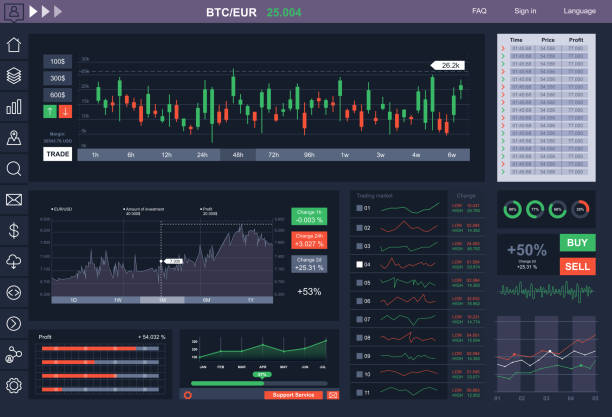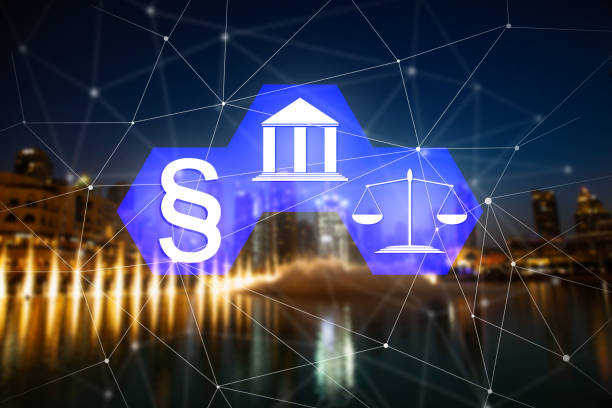In the paced world of trading where financial markets are just a click away traders often dive deep into market trends, investment strategies and profit margins. However, amidst the excitement of gains it’s crucial not to overlook the obligations that support the platforms facilitating these transactions.
This comprehensive guide aims to educate traders about the complexities surrounding trading platforms. It provides insights into the responsibilities they should be mindful of in order to ensure a compliant trading experience.
I. Introduction to Online Trading Platforms
Defining their Purpose and Functionality
Online trading platforms act as intermediaries that connect traders with markets. They serve as interfaces for executing buy and sell orders offering a variety of financial instruments such as stocks, bonds and cryptocurrencies.
Various Types of Trading Platforms
The market offers options when it comes to brokerage platforms for individual investors or institutional platforms catering to financial entities. Understanding these differences is crucial in selecting a platform that aligns with trading needs.
Growing Significance in the Digital Economy
With the advancement of technology online trading platforms have gained importance in the financial ecosystem. Therefore it becomes essential to examine their responsibilities.

II. Regulatory Compliance
Licensing and Registration
Respected trading platforms like Squared Financial adhere to frameworks by obtaining licenses and registrations from authorities. Traders must ensure that a platform is compliant, with the law to guarantee a legal and secure trading environment.
Adhering to Securities Laws
Online trading platforms frequently deal with securities making them subject to laws and regulations. It is crucial for traders to understand these frameworks in order to navigate the intricacies of the market.
Preventing Money Laundering (AML) Regulations
Stringent AML regulations require platforms to implement procedures for detecting and preventing money laundering activities. Traders should familiarize themselves with the platforms AML measures in order to ensure the legitimacy of their transactions.
The Impact of GDPR on Trading Platforms
Data protection laws, such as the General Data Protection Regulation (GDPR) are applicable to platforms that handle user data. Traders should assess how platforms handle and safeguard their information while complying with these regulations.
III. User Terms of Service
The Importance of Reading the Fine Print
The user agreement serves as a foundation, between traders and the platform they use. It is crucial for traders to thoroughly read and comprehend the terms of service including clauses related to fees account termination and dispute resolution.
Clauses Concerning Data Security and Privacy
In today’s world where cyber security threats on the rise it is crucial to have an understanding of how a platform safeguards user data. When it comes to trading user agreements play a role, in outlining data security measures and privacy policies that traders should be familiar with.
One specific area worth noting is the arbitration and dispute resolution mechanisms mentioned in these user agreements. Traders need to be aware of these provisions as they greatly impact the options for seeking redress in case of any disputes.

IV. Market Manipulation and Insider Trading
Surveillance to Prevent Market Manipulation
To maintain the integrity of the market platforms employ surveillance systems to detect and prevent any instances of market manipulation. Traders should understand how committed the platform is towards transparent markets.
Restrictions on Insider Trading
Insider trading is tightly regulated, with platforms playing a role in preventing and reporting any activities related to insider trading. Traders need to be aware of the platforms policies regarding this matter.
Legal Consequences for Violations
Having an understanding of the consequences associated with violations related to market manipulation and insider trading is essential for traders. It is important for traders to familiarize themselves with both the platforms policies, as potential legal repercussions.
V. Continuous Legal Education for Traders
The Significance of Understanding Legal Obligations
While trading platforms have responsibilities it is equally crucial for traders to actively familiarize themselves with their rights and obligations. Continuous legal education plays a role in navigating the changing landscape of online trading.
Resources for Ongoing Legal Learning
Traders can greatly benefit from various resources such as webinars, articles and regular legal updates that help them stay informed. Platforms that provide access to resources contribute to the legal education of traders.
Keeping Up with Regulatory Changes
Keeping up with regulatory changes frameworks evolve, which has an impact on the legal responsibilities of both trading platforms and traders. Traders should make it a priority to stay updated on changes that might affect their trading activities.

Conclusion
In the realm of trading having a clear understanding of the legal obligations that apply to trading platforms is absolutely essential. Traders who prioritize comprehension of these intricacies not only safeguard their investments but also play a role in fostering a more transparent and secure trading environment.
As the digital economy continues its growth the interdependent relationship between traders and platforms emphasizes the importance of upholding compliance, building trust and ensuring long term sustainability, within online trading ecosystems.




